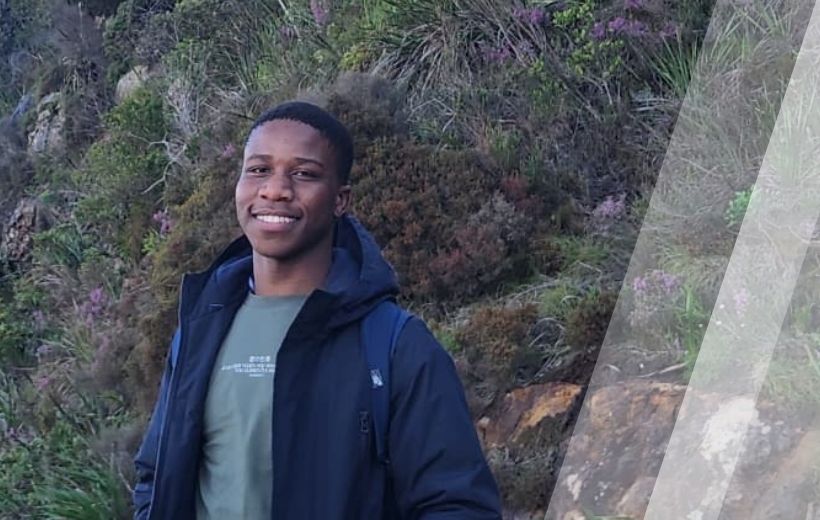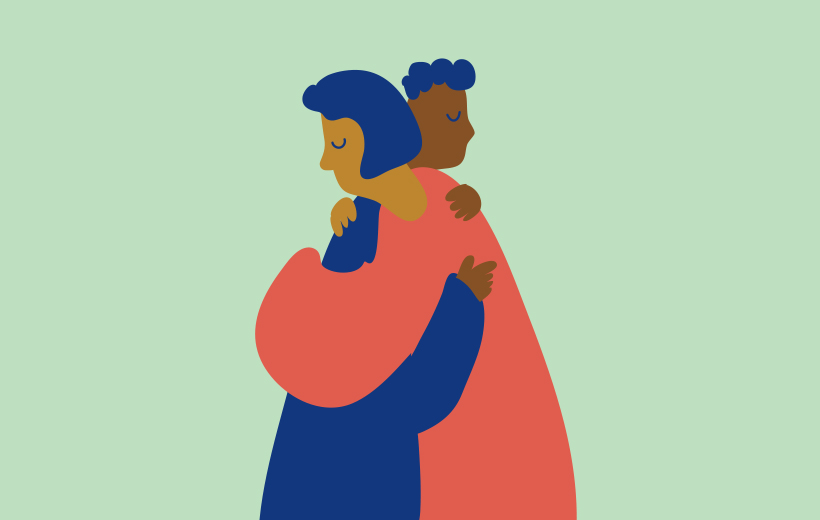Meditation and University Life: A Conversation with Tshepo Molekwa
By Franka Cordua-von Specht • 3 min read
By Franka Cordua-von Specht • 3 min read

FOR MANY YOUNG PEOPLE, the move from high school to university is both exciting and daunting. The workload is heavier, the expectations greater, and the sense of independence liberating and overwhelming. For Tshepo Molekwa, a 19-year-old first-year student of computer science and computer engineering at the University of Cape Town (UCT), meditation has become an unexpected source of support on this journey.
“I come from a village that is peaceful and calm,” Tshepo said in an interview from the campus. Born in Limpopo and raised in Mpumalanga, he found moving to Cape Town for university opened a new chapter filled with opportunity, but also stress.
Tshepo’s first introduction to meditation came through university programs. “At the beginning of the year, because I’m on a bursary, they organized a mindfulness workshop for us to help handle academic stress.” Later, he joined a 10-day leadership program organized by the Department of Student Affairs, which introduces students to meditation and overall well-being.
“In our pursuit of everything else, of a degree, of living a good life, to becoming an accomplished scientist or doctor or lawyer, we forget about our soul. We forget that we must find contentment in everything that we do,” Tshepo said. “It’s not about getting the degree at the end of these three years, but also during that time, the lessons that you learn and that you can take into the workplace and also into your life and share with others.”
Like many students, Tshepo has felt the weight of academic expectations. “University work is a lot. The academic workload can be very tiring. Meditation has helped me take a break and allow events to happen without letting them weigh too heavily on my mind.”
The benefits go beyond relaxation. “I think I’ve become a person who is less reactive and more responsive. Before, when unexpected situations happened, I would panic and be all over the place. Now I can calm down and think about a way forward. Even with test results — when you thought you did well and it turns out you didn’t — you can break down at any moment. But now I just breathe in and out, reflect on where I went wrong, and think about how I can do better in the future.”
For Tshepo, meditation isn’t confined to a cushion. “I don’t have a set time where I say, ‘Now I’m meditating.’ But I try to incorporate it throughout my day, especially when I feel overwhelmed. Sometimes when I get to class, the first thing I do is just sit, breathe in and out, and calm down. I haven’t established a fixed routine, but I bring it into everyday life.”
This flexible approach has made mindfulness more accessible, allowing him to carry it with him through the ups and downs of student life.
Tshepo felt fortunate to have attended Mingyur Rinpoche’s Anytime Anywhere Meditation program at UCT. “I found it very informative and enlightening, especially because Rinpoche was talking from a place of experience — his own panic attacks — and how meditation helped him. That made it easy to relate to.”
“What stood out most was Rinpoche’s emphasis on three qualities: awareness, love and compassion, and wisdom. I’ve been thinking about how I can use those in every aspect of my life — my academics, social life, and leadership. Also, the idea that you can meditate anytime, anywhere was striking for me. I like to do things at a certain time, so realizing that you can practice while walking to campus or in class was new and very helpful.”
“In our pursuit of everything else, of a degree, of living a good life, to becoming an accomplished scientist or doctor or lawyer, we forget about our soul. We forget that we must find contentment in everything that we do.”
— Tshepo Molekwa
Rinpoche’s visit left a lasting impression. “It was an honor for UCT and for South Africa that his first visit to Africa was here. Despite our problems, South Africans describe this as a happy place. We can always find a reason to laugh. Hearing him teach in person was very special, and his teachings were mind-opening for me and for many others.”
Meditation has also influenced how Tshepo thinks about leadership. As part of Mingyur Rinpoche’s visit, Tshepo spoke as a student panelist in the How Meditation Gives Life to Our Passions workshop. “I said that when we meditate, we are able to think about ourselves, our principles, and our values. These guide what we do and fuel our passion. So when we choose careers, projects, or leadership roles, meditation helps us connect with what matters most. That way, we can live a more meaningful and fulfilling life.”
And Tshepo is putting these principles into practice. He serves on the Student Housing Tribunal and is running for Head Student of his residence. Last year, while still in high school, he was president of the Representative Council of Learners and served on the school governing body.
Do his friends meditate? “I don’t think just yet, because it also took me some time to get adjusted to it, so I’m also giving them that time to get used to it, to its benefit. They can see in me that it is helpful.”

Franka Cordua-von Specht, co-founder of the Tergar Vancouver Practice Group and Tergar Canada, contracts for Tergar International’s marketing and communication team. She is a Tergar Guide and facilitates Joy of Living workshops.
Learn meditation under the skillful guidance of world-renowned teacher Yongey Mingyur Rinpoche at your own pace.


Shifting from empathy to compassion activates brain regions linked to positive emotions, social connection, and reward, similar to those engaged in joy or pleasure.

Tergar Guide Maria Primachenko shares her journey from an intense advertising career to a healthier work-life balance, emphasizing self-care, mindfulness, and letting go of the need to act on every idea or be constantly heroic. Guided by Mingyur Rinpoche’s teachings, she highlights the importance of living in the present moment, embracing change, and trusting intuitive…

“Looking again at that busy train station, I can recognize that just like me, everyone who’s running around is identifying with this solid sense of self, and they’re also saying, “If I just get this one thing!” – Anya Adair
If you enjoyed reading our articles, please join our mailing list and we’ll send you our news and latest pieces.